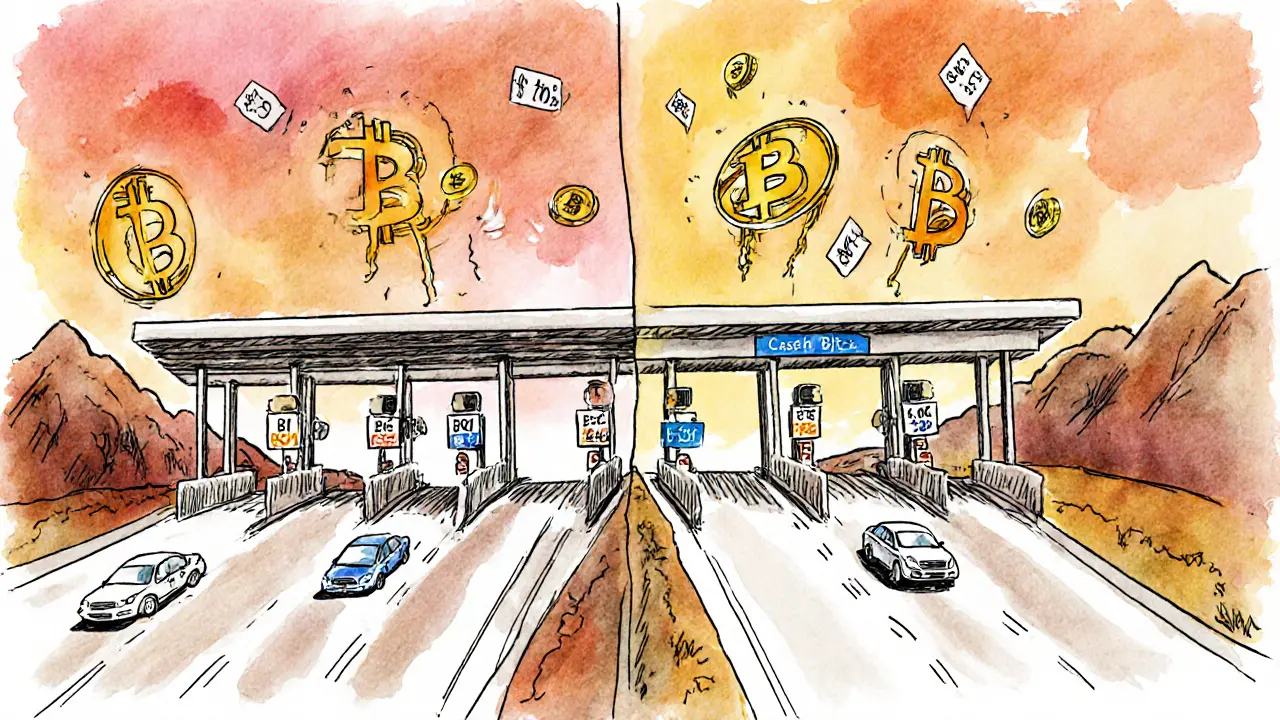Bitcoin Cash transactions: How they work, why they matter, and what to watch out for
When you send a Bitcoin Cash, a peer-to-peer digital currency created in 2017 as a fork of Bitcoin to fix scaling issues. Also known as BCH, it was designed to be money you can actually use every day — not just a store of value. Unlike Bitcoin, which limits blocks to 1 MB, Bitcoin Cash uses 32 MB blocks. That means more transactions fit in each block, leading to lower fees and faster confirmations — often under a minute. This isn’t theory. Real users in El Salvador, Nigeria, and even parts of the U.S. use BCH to pay for coffee, rent, or groceries because it just works.
But here’s the catch: not all wallets and exchanges treat Bitcoin Cash the same. Some still mix up BCH with BTC, and if you send Bitcoin Cash to a Bitcoin address? Your funds are gone. That’s not a glitch — it’s a common mistake. You need a wallet that clearly supports BCH, like Electron Cash or Trust Wallet, and you must double-check the address format. BCH addresses start with ‘bitcoincash:’ or ‘q’ — if you see a ‘1’ or ‘3’ at the start, you’re looking at Bitcoin, not Bitcoin Cash. And don’t trust copy-pasted addresses. Always verify the first few characters manually.
Bitcoin Cash transactions also don’t need third-party approval. You’re not waiting on a bank or payment processor. The network validates your transaction using proof-of-work, just like Bitcoin, but with lower mining difficulty. That means even small miners can stay active, keeping the network decentralized. But that also means you’re responsible for your own security. No chargebacks. No refunds. If you send BCH to the wrong person, there’s no customer service to call. That’s why knowing how to read a transaction on a block explorer like BCH.info matters — you can see exactly when it confirmed and who received it.
Some people think Bitcoin Cash is dead because it doesn’t make headlines like Ethereum or Solana. But the truth? Its transaction volume stays steady, and its fee structure is still the cheapest among major chains. You can send 100 BCH transactions for less than a dollar. Compare that to Ethereum, where one swap can cost $10–$50. That’s why projects like BitPay, Simplex, and even some online retailers still accept it. It’s not flashy. But it’s reliable.
And then there’s the noise. Scammers love to create fake BCH wallets, fake airdrops, and fake exchanges pretending to support Bitcoin Cash. You’ll see ads for ‘BCH 2.0’ or ‘Super BCH’ — those are scams. Real Bitcoin Cash hasn’t changed its protocol since 2018. If someone says they’re upgrading it, they’re lying. Stick to the official Bitcoin Cash website and known wallets. No one is giving away free BCH. Ever.
What you’ll find in the posts below aren’t just reviews or tutorials. They’re real-world checklists: how to spot a fake BCH exchange, why some platforms block BCH deposits, how to track your transaction history without third-party tools, and what to do if your wallet suddenly stops showing your balance. These aren’t guesses. They’re lessons from people who lost money because they didn’t know the difference between a Bitcoin address and a Bitcoin Cash address. You don’t need to be a tech expert. You just need to know what to look for.
